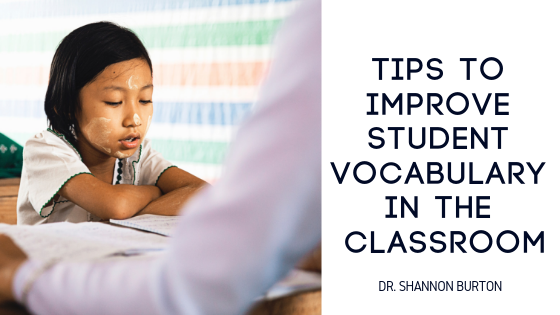The English language can be tricky especially if it is not a students first language. Students should be using a word ten times before it sticks in their everyday vocabulary. While teaching vocabulary should be done with more than just memorizing words on flashcards, it is important to remember that every student learns at a different pace and it may take some students a little extra time to nail down additional vocabulary words. The following three tips are just some of the ways you can help your students increase their vocabulary while in the classroom.
Read for Meaning
Reading is one of the most effective ways to help a child increase their vocabulary. Reading for meaning is a research-based practice that helps students understand challenging vocabulary. This practice gives students the opportunity to not only practice but master phrases that lead to success and improved word usage. Students can use strategies that include actively searching for new words while they read and then reflecting on what they learned while reading.
Vocabulary in Context
Using a subject to teach students adjectives is a fast way to increase a students vocabulary. When students learn lists of words that are not connected to a subject or a story, it is sometimes harder for them to comprehend what those words mean. Asking students to answer questions based on the description of an object or playing word games can help them recall words at a later date.
Vocabulary and Content
Teaching students content related to a specific term, concept, or vocabulary is not only a great way to build up their vocabulary, but it also helps them understand specific content related to what they are learning. Student reading comprehension is based on their knowledge of words and teaching them keywords is a way they will be able to comprehend texts. They will be able to define words, recognize how the word can be used in a sentence, and know the difference in the multiple meanings some words carry.
Increasing students vocabulary is an important part of their education. Harder words will become second nature to them, and teachers will start to see higher test scores and an increase in their students reading levels because of it.

